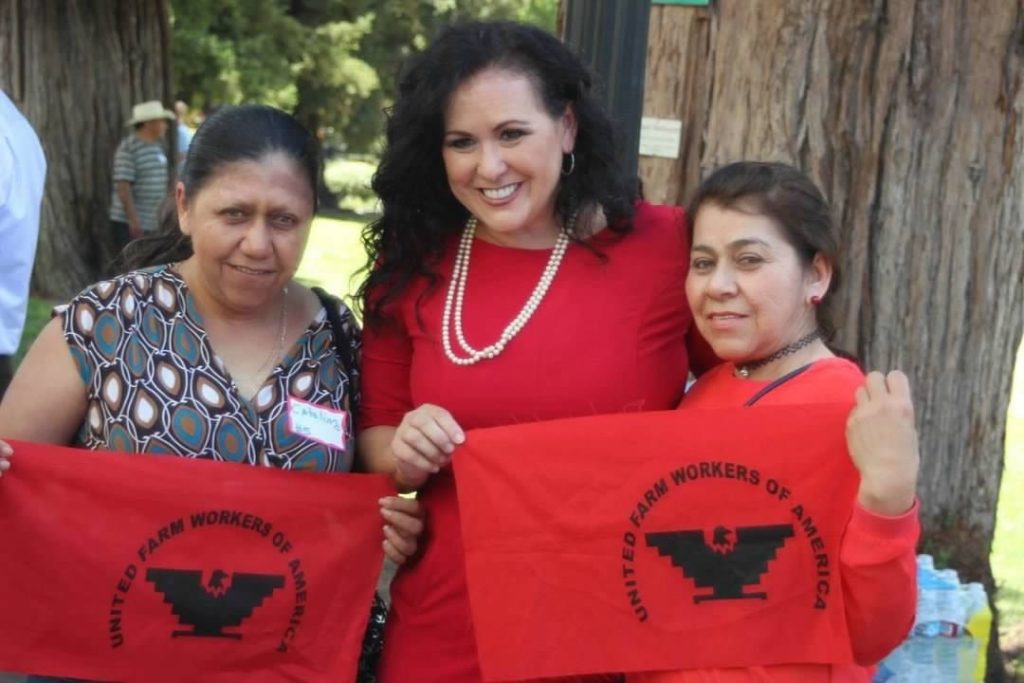Unions are having a transformative 2021: They’re waging war against Proposition 22 and breaking into the traditionally union-hostile tech industry.
Assemblywoman Lorena Gonzalez (D-San Diego) and a majority of Silicon Valley’s legislators are hoping to carry some of that momentum into their chambers.
On Jan. 25, Gonzalez reintroduced Assembly Bill 314, which would give legislative staffers the ability to unionize. More than a third of state legislators have signed on as co-authors, including five of San Jose’s seven legislative representatives: Assemblymen Ash Kalra, Alex Lee and Mark Stone and Sens. Dave Cortese and Bob Wieckowski.
“I think people realize that no matter what your job is, there is sometimes the need to have a true voice on the job,” Gonzalez said. “Corporations have smashed that.”

The measure would cover the state Legislature’s estimated 2,000 non-elected employees, except for appointed officers and departments or office leaders.
Assemblyman Evan Low and Sen. John Laird, both representing parts of South San Jose, are not listed as co-authors.
Lee, himself a former staffer for Low and Sen. Henry Stern, welcomed the bill.
“How can state lawmakers expect to fight for workers’ rights when we deny it to our own employees,” said Lee. “As a former staffer, I know legislative staff need to unionize.”
Further south, Lee’s colleague, Assemblyman Ash Kalra, echoed the sentiment.
“We need to practice what we preach,” Kalra said.
While wanting to hear more details about he measure, Laird said, “I am a longtime, strong supporter of employees’ right to organize.”
The movement is a long time coming, according to Nicholas Barron, an anthropology professor at Mission College and a local labor advocate. Barron said the typical picture of the union member, a hard-hat construction worker, is changing — and that’s for the better.
“We have these sort of outdated conceptions of what unionization is, and if it exists it should only be in the world of the building trade,” Barron said. “That probably makes it even harder for (unions).”
The state steadily has granted public employees the right to organize since the 1960s, allowing it for local government workers, public school teachers and public university employees. In 1977, the Legislature passed the State Employer-Employee Relations Act to govern relations between the state and executive branch employees. Judicial council employees were given the right to organize in 2017, still leaving legislative workers out of the equation.
The bill could possibly work to prevent retaliation from legislators against staffers — something that has plagued the Assembly in the past with cases alleging Assemblymembers Cristina Garcia and Devon Mathis of sexual misconduct and verbal abuse against staffers in recent years.
“The conversation about unions has always been present in Sacramento,” said Jean Cohen, executive officer of the South Bay Labor Council. “But there’s a willingness and boldness among the current leaders in Sacramento to move this bill forward in an important time when workers, including legislative staff, need protections and access to things like whistleblower protections.”
White-collar unions have ridden a wave of support in recent years: Public support for labor unions is at the highest level in 17 years, according to a 2020 Gallup poll. That support comes despite the U.S. Supreme Court’s 2018 decision in Janus v. AFSCME, which dealt a blow to government unions, ending their ability to court fees from non-union members.
In 2019, employees from internet companies Kickstarter and BuzzFeed formed their own unions, and some labor experts say the next wave of organizing will come from Silicon Valley.
“I can’t speak for the staff but even if they disagree with the idea of having staff unionize, the idea that we’re going to allow them to decide it, I think they’d be supportive of that,” said Wieckowski, who represents parts of North San Jose.
As of tonight, we have 40 co-authors for our bill that would finally allow legislative staff to organize, if they choose! 34 are Assemblymembers, 6 Senators. We will introduce this bill tomorrow. Thank you: pic.twitter.com/wBtDqm0cBR
— Lorena Gonzalez (@LorenaSGonzalez) January 25, 2021
Still, if Janus is any indicator, government unions still haven’t been embraced even in labor-friendly states like California. The bill has failed twice in the state Legislature.
“That’s where we’re at in 2021, where our understanding of progressive politics are so out of whack that the idea that you would extend unionization rights to legislative staff is actually something that needs to be debated,” Barron said. “It should be bizarre.”
Cortese and a representative for Low declined to comment.
The bill is scheduled to be heard by the Committee on Public Employment and Retirement in the coming weeks. The panel will eventually vote on whether to bring it forward to the rest of the Assembly for a vote.
Should the bill become law, California will be the first state to allow its legislative employees to organize.
Contact Lloyd Alaban at [email protected] or follow @lloydalaban on Twitter.



Leave a Reply
You must be logged in to post a comment.